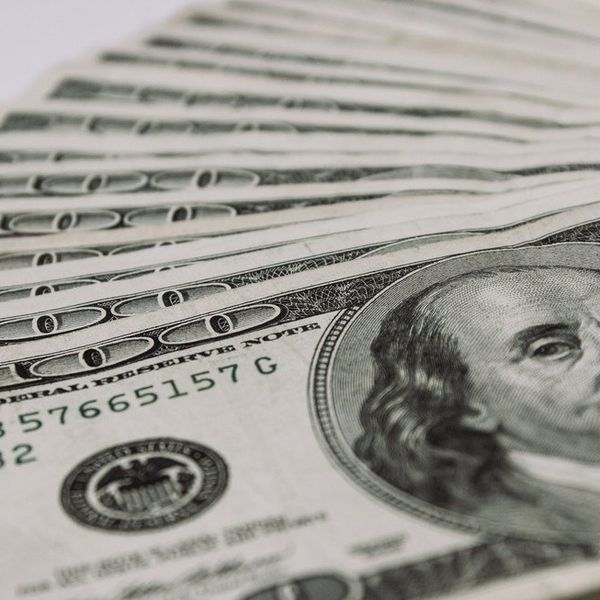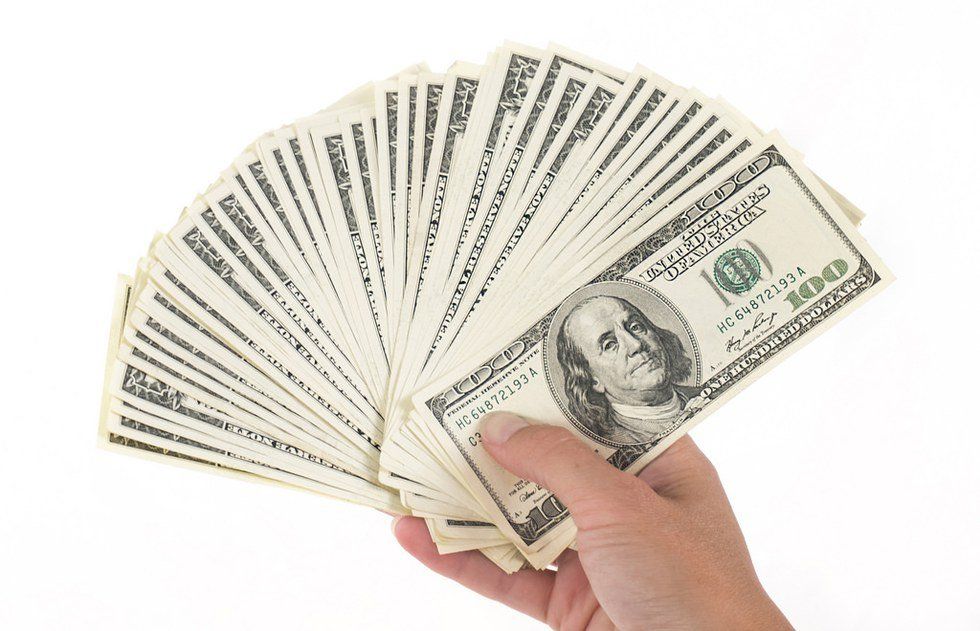Once I made it to college and I went off on my own, I all of a sudden never seemed to have any money. My bank account went from one extreme to the other in a matter of a few months. I'm not sure how it happened, but it seemed to happen to everyone. I wasn't in it alone. I guess it's just apart of going away to college. Here's how to avoid some common mistakes.
1. Don't buy the most expensive meal plan.
No one really enjoys the dining center food do they? I mean maybe the football players, since they eat mass quantities every day, but other than that there aren't too many fans. Everyone thinks the summer before school starts that the dining center is their only option. All of the snackers, like myself, are worried about not having enough meals to fulfill their never-ending hunger pangs. But truly, once you have your first tastes of the dining center, you won't be back as many times as you think. You'll be surprised at the various alternatives that you find yourself eating along the way.
2. Give yourself a budget for dining out.
Like I previously said, very few people enjoy the dining hall. That being said, you and your friends are gonna eventually find your way to some more ideal places to grab a bite to eat. The only problem that this poses is that you only have a limited amount of cash to make spread until you head back home. Set a realistic budget for yourself, depending on if you have a job or not, and stick to it. Don't forget to calculate in the late night pizza that you have brought to your dorm at 1 a.m..
3. ALWAYS BUY USED TEXTBOOKS.
New textbooks can cost hundreds of dollars and can leave your bank account even more empty than before. Although used textbooks can also be pricey, they are much more reasonable than the new ones. I also suggest not buying any of your books until you get to class and listen to what your professor has to say. If he/she tells you that it's optional, do not buy it. That means that you will not be expected to know anything from the inside. Another tip that I can give is to utilize ratemyprofessors.com. If you look up your professor and scroll down to read the comments, former students will often let you know if they utilized the book. If all of the comments shoot it down, I suggest not buying it, even if your professor says otherwise. Don't forget, colleges are businesses which need to make money. You can always go back and purchase the book a few weeks later if need be.
4. Make your own coffee.
I know it's just not the same as Starbucks, but you can learn how to make your Keurig coffee taste just how you like it. Try asking your parents, most of them have become coffee ground experts, and know the best tasting flavors. For example, try mixing in cinnamon to your morning cup. And speaking of cups. Buy a reusable one to save money so not only will you be saving money at Dunkin' Donuts, but also at the grocery store by eliminating plastic cups.
5. Go to class.
Remember, you are paying for every single one. And to top it off, if you fail, you have to take it again ... and pay again.
6. Don't buy name brand items.
At the grocery store, don't buy the most expensive paper plates. Name brand ones will work just as well while you're counting pennies.
7. Carpool.
If you are going out and about, ask around. Chances are so are some of your friends. You can take turns driving. You'll have some companions for your errands, and you'll be saving gas along the way.





















